Primary, secondary education in Brussels 2024
-
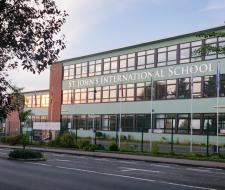 In 2019 students achieved an impressive average diploma score of 32.2
In 2019 students achieved an impressive average diploma score of 32.2 BelgiumBrusselsCurrently watching: 10from 11900.00 € / yearApply with documents
BelgiumBrusselsCurrently watching: 10from 11900.00 € / yearApply with documents
-
 In 2019 students achieved an impressive average diploma score of 32.2
In 2019 students achieved an impressive average diploma score of 32.2 BelgiumBrusselsCurrently watching: 10from 11900.00 € / yearApply with documents
BelgiumBrusselsCurrently watching: 10from 11900.00 € / yearApply with documents -
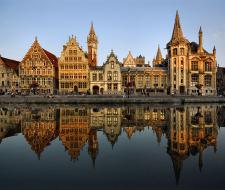
 BelgiumBrusselsCurrently watching: 6Apply with documents
BelgiumBrusselsCurrently watching: 6Apply with documents -
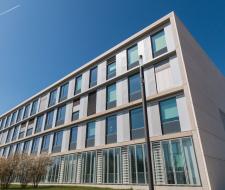 Ranked #26 worldwide for joint-EMBA programmes
Ranked #26 worldwide for joint-EMBA programmes BelgiumBrusselsCurrently watching: 1Apply with documents
BelgiumBrusselsCurrently watching: 1Apply with documents -
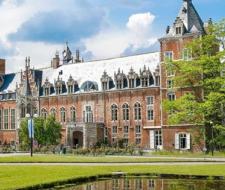 Apply with documents
Apply with documents -
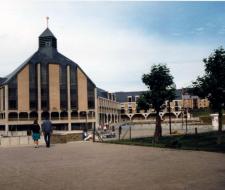 Apply with documents
Apply with documents -
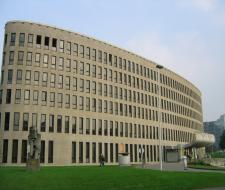 Apply with documents
Apply with documents -
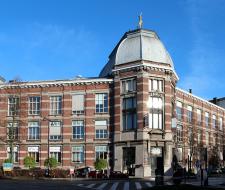 Apply with documents
Apply with documents -
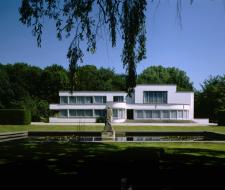 The number 51 University in Belgium
The number 51 University in Belgium BelgiumBrusselsCurrently watching: 1Apply with documents
BelgiumBrusselsCurrently watching: 1Apply with documents
Alternative destinations
Education information
Studying in Brussels is quite prestigious. Secondary education in Belgium for children is taught at a high level, as there is an individual approach to each student. Education in this country complies with the principles of the Bologna Process. University graduates receive European-style diplomas. Belgian schools and universities are included in the ranking of the 20 best educational institutions in the world. In addition to prestige, there are other advantages of studying in Brussels:
- Multicultural environment. Belgium does not have a single linguistic, national and religious space. The diversity of cultures provides great opportunities for confident communication in Dutch, German or French.
- Introduction to art. Belgium has a rich cultural atmosphere: students can get acquainted here with samples of Flemish painting, works by the famous surrealist Rene Magritte. The cities of Bruges, Ghent, Antwerp are entire architectural monuments.
- Low tuition fee. Studying in Brussels is much cheaper than in other countries where French and German are spoken.
- Internships. While receiving secondary education in Brussels, students can apply for admission to higher educational institutions of the country. Universities conduct internships at large international enterprises in the United Kingdom.
- Opportunity to travel. After enrolling in an educational institution in Belgium, students receive a student visa for several years, which gives them the right to move not only within its borders, but also across the EU countries.
Secondary education in Brussels – stages of studying
Schools in Brussels accept students at the age of 6. When a child enters an educational institution, he is under the watchful supervision of a class teacher. The teacher monitors not only the safety of students, but also their success in learning and creative development.
The school system of Belgium is a following:
- Basic education — preschool (2.5–6 years) and primary (6-12 years);
- Secondary education (12-18 years).
The career guidance begins early enough. Students who are still at the initial stage of primary education in Brussels choose their educational profile in accordance with the direction of their future specialty. In addition, graduates of junior schools already have skills for further development in a certain profile. Therefore, secondary schools (or colleges) select students according to their skills.
In addition to receiving high academic studying, students of Brussels schools have the opportunity for creative realization. For multilateral development, educational institutions offer various circles and sections.

What would you say is the most important when choosing a school?
This is the quality of support and work of the management, the opportunity to study at IB, the prestige of the school and the percentage of successful completion of the diploma stage of IB, recommendations for further universities. It is worth considering the national "recruitment" of campus students, opportunities for extracurricular development and activities, the availability of medical services and consultations, opportunities for language immersion. Is education at the chosen school based on the values you share? Is the school a close-knit community? Is academic support good?
Primary schools in Brussels – organization of studying
Studying in primary school in Brussels lasts for six years and belongs to compulsory education. In all types of such schools, the number of subjects and the content of the programs are approximately the same. Education is divided into three cycles, each of which lasts for two years.
Children learn to read, write, count, and also acquire a basic set of knowledge in general education subjects, including:
- History,
- Mathematics,
- Music,
- Religion,
- Natural sciences,
- Art lessons.
Classes last five hours with a long break for lunch. The morning usually begins with writing lessons, math, languages, or other subjects that require concentration. After lunch, time is devoted to creative disciplines. On Wednesdays there is a shortened day, before lunch.
Classes are conducted in the languages of the communities, depending on which of them the school belongs to. In Brussels and some other Flemish municipalities, the second language (usually French) begins to be taught from the first cycle, but mostly it is taught from the third stage of primary education. In French municipalities, Flemish or English is taught as a second language in primary schools.
Secondary schools in Brussels – specifics of studying
Belgian children finish primary school at the age of 12. At this age, they enter secondary school, where they can decide on further specialization and show their skills and interests. A secondary school in Brussels offers students a six-year course of study. There is a basic program with compulsory subjects for all students. Other disciplines are offered to students to choose from, and the type of secondary education depends on it. There is of two types:
- Classic traditional,
- Classic updated.
Classical traditional education consists of two program cycles, each lasting three years. It offers classical and humanitarian specializations of a general nature, prepares students for admission to universities. The classical updated education is divided into three two-year cycles. The first of them is general education, the second is orientation (where a choice of subjects for further study is provided) and the third is decisive. In the last cycle, the program is limited to the study of selected disciplines and prepares the child for admission to a higher educational institution or for vocational education. Specialization in this type of school is aimed at two possibilities:
- Obtaining basic, technical or artistic education for further education,
- Obtaining vocational education, after which the graduate immediately goes to work.
Secondary schools in Brussels fees for foreign students
The tuition fee in Brussels depends on the age of student, the ranking of educational institution, type of studying program, and type of accommodation. On average, the cost of studying varies from 30,000 to 36,000 euro per academic year, including nutrition.
Learning programs-summary information
| Name | Meaning | Equivalent | Min. age | Duration, years |
Next stage | Cost |
|---|---|---|---|---|---|---|
| GCSE | General certificate of secondary education | secondary education (non-accomplished) | 14 | 1–2 | A-Levels | 15,000 USD+ |
| A-Levels | Advanced level | secondary education (accomplished) | 16 | 2 | University | 15,000 USD+ |
| BTEC | Business and Technology Education Board | secondary special education | 14 | 2–3 | University/ work | 15,000 USD+ |
| Oxbridge Preparation | Preparing for Oxford and Cambridge | secondary education (accomplished) | 17 | 1 | University | 15,000 USD+ |
| International Baccalaureate | International baccalaureate | secondary education (accomplished) | 16 | 2 | University | 18,000 USD+ |
| Foundation/ Pathway Year | Preparatory year | admission to the 1st year of university | 17 | 1 | University | 14,000 USD+ |
| NCUK | The Northern consortium | 2 year university | 17,5 | 1 | 2 year University of NCUK | 13,000 USD+ |
| Special Preparation (Medics/Math/Business) | Specialized training | - | 14 | optional | optional | 4,000 USD+ |
| Academic English | Academic English | Language school | 8 + | 6–12 months | School or University | 8,000 USD+ |
Advantages and disadvantages of English schools
| Advantages | Disadvantages |
|---|---|
| The opportunity to enter the best universities in England, USA, Canada, Switzerland, Europe, the world | Expensive |
| High quality of education and academic standards | Strong workload |
| Perfect English after graduation | The need to change the social environment; it takes time to adapt |
| Useful contacts | The difficulty of choosing the most suitable school for the child, requires a qualified specialist |
Top 21 boarding colleges in England 2024
| 1 | Cardiff Sixth Form College |
| 2 | National Mathematics and Science College |
| 3 | Abbey College Cambridge |
| 4 | d'Overbroeck's College |
| 5 | MPW London |
| 6 | CATS Cambridge |
| 7 | Kensington Park |
| 8 | DLD London |
| 9 | King's College St Michael’s |
| 10 | Bellerbys Cambridge |
| 11 | Chelsea Independent College |
| 12 | MPW Cambridge |
| 13 | Bellerbys Brighton |
| 14 | CATS London |
| 15 | St Clare's Oxford |
| 16 | Bishopstrow College |
| 17 | CATS Canterbury |
| 18 | Bellerbys London |
| 19 | Ealing Independent College |
| 20 | Cambridge Tutors College |
| 21 | Abbey Manchester |



